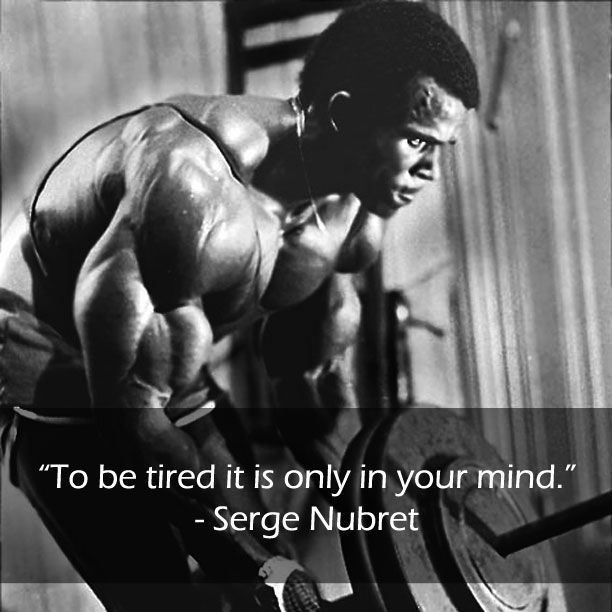Hiya mates!
After celebrating Yule, every new year brings its share of usual good resolutions. Here’s an article to help you kickstart this year on a good path, avoid collisions and bring your ship safely to harbor… onto many years yet to come!
Understanding and monitoring your cortisol levels will definitely improve your overall wellness, and get you to know your body better than last year. People often fear this hormone, which role is easily shortened to “it makes you feel stressed out and store fat”. Now, don’t get me wrong: this is true. However, with a bit of common sense, you fools will also agree that your organism is unlikely to merely secrete a harmful hormone whose sole purpose is to wreck your fleet, right?
Let’s see what cortisol implies.
What is Cortisol and its Functions
Being among the catabolic hormones lot, cortisol makes you feel alert, nimble and ready for anything.
✔️ Wakey-wakey: cortisol gets you out of your sleep on mornings, ready to tackle a new day.
✔️ Increases adrenaline: by converting noradrenaline into adrenaline via PNMT enzyme (Phenylethanolamine-N-methyltransferase). This has a direct effect on your energy level, drive, focus, etc.
✔️Strengthens heart contractions & raises the pulse rate: speeds up blood flow, thus helping to carry oxygen into the muscles and cleanse them from metabolites. Note that adrenaline does that too.
✔️ Strengthens muscle contractions: yet another effect of adrenaline.
✔️ Helps maintain stable blood sugar levels: increases blood sugar levels which are too low (this is also allowed by growth hormone and glucagon).
✔️ Releases stored energy: cortisol will crave for fuel -doesn’t matter where it comes from- all the way from muscles and liver glycogen supplies, to fatty acids out of fat storage, or else amino acids from muscles tissues. It’s a non-selective process.
✔️ Inhibits the immune system: this enables all the body resources to stay focused on survival, and cope with whatever threat is arising. This is why fighters usually don’t feel much pain when hit or hurt, but eventually do so afterward; this mechanism musters all the body resources until cortisol and adrenaline go down, which then allows recovering.
Knowing that all those seven points take place at the same time, we can definitely admit that cortisol is pretty useful so far. Problems arise when your cortisol levels get chronically high. Instead of naturally going up when necessary, and down when it’s time to have a nap in your hammock, it remains at a high level for extended periods of time.
Here’s an extensive list of what happens to muscles, fat, recovery and your well-being when you lose sight of the North and start to keep your cortisol levels off the right track.
Cortisol Levels and Muscle
❌ Cortisol inhibits muscle growth & nutrient uptake: building up a certain amount of muscle is directly correlated to how much catabolism and anabolism process your body is going under. If there is too much catabolism (that cortisol tends to boost), the protein breakdown will severely decrease muscle growth speed, if not plainly stop it. Now, it goes the same for the nutrient management: with glycogen being consumed over and over, you can’t expect your body to get the amino acids to the muscles for repair and growth, right? That’s a no-win situation.
❌ Cortisol boosts muscle breakdown: as written above, cortisol will draw on any body resource, including muscles. Long-term high levels of cortisol will result in burning some muscle off.
❌ Cortisol increases myostatin functions: your body releases a signal protein (myokine) which inhibits the growth of the muscle cells. That’s basically a survival mechanism to limit muscle mass when not having enough calories to sustain it. Chronically elevated cortisol thus negatively influences this genetic regulation by significantly minimizing muscle building processes.
❌ Cortisol slows down muscle repair: the muscle repairing process highly depends on the immune system. If the latter remains shut down by cortisol, you can imagine that repairing tissues will take much longer.
❌ Cortisol can decrease testosterone: both testosterone and cortisol are made up of pregnenolone, the “mother” hormone of all steroid hormones such as testosterone, DHEA, progesterone, etc. If your body overproduces cortisol, then there isn’t much left for the other hormones, including testosterone.

I doubt your life is too.
Cortisol Levels and Fat
As we saw previously, cortisol is actually a fat-loss burning hormone. Yet, it can lead to struggles with fat loss despite normally mobilizing fatty acids in storages. How? Well, two ways:
1️⃣ Inhibition of the T4 to T3 conversion: most of our metabolism and functions depend upon the thyroid and its hormones. T3 is the most potent one as it influences your metabolism: the more T3 you produce, the higher your metabolism and thus the caloric expenditure is. In a fat loss phase, having high T3 production is key to keeping the metabolism high. However, T3 is actually made primarily from T4, that have less impact but is still very important.
When your cortisol levels are high, the conversion of T4 into T3 decreases significantly. That is a survival mechanism that we have inherited: when your cortisol level is high, then you are not able to provide for your body to be nourished properly, it therefore needs to reduce its caloric needs to survive. Chronically elevated cortisol levels will do just the same.
2️⃣ Can lead to insulin resistance: by increasing blood sugar levels, cortisol allows us to get energy mobilized for effort. But if you are sedentary, it means you get hyperglycemia, and that the body needs to produce insulin to shuttle it down. Is it good? Well, yes, but at some point, it will get desensitized and will need more insulin for the same job. That implies a growing insidious insulin-resistance which can lead to dreadful diabetes.
It then gets harder to lose fat since the body will need more insulin to handle the nutrients you give to it, and also more time to bring it back down. Meaning less time in the “fat mobilization” phase. On top of that, a decreased metabolism means that you will have to reduce your food intake, when your body is already less efficient with it. Now, do you see the vicious circle? At that point, despite being a “fat-burning” hormone, too much of it will make it harder to lose some overtime.
Cortisol and Recovery
- Cortisol inhibits GH: alright, I did write just above cortisol boosts GH, but strangely enough, this only happened during in-vitro studies (in a tube) but not in-vivo (in a real human being). So, if you get a high cortisol level at nights, when you are supposed to get a GH spike, recovery is compromised.
- Cortisol increases madrenaline: at the risk of being repetitive, cortisol increases adrenaline. If the latter is high when you are supposed to be relaxed, then you generally end up not sleeping as well, not recovering as fast, and not healing as good as when the adrenaline level is normal.
- Cortisol decreases muscle glycogen storage: this is a key part of muscle recovery.
- Cortisol decreases muscle repair speed: see all the points regarding its relationship to muscles.
Cortisol and Well-Being
- Cortisol decreases noreadenaline: the more cortisol is produced, the more adrenaline is made out of noradrenaline, thus depleting this stock. Insufficient noradrenaline leads to anxiety, low blood pressure, depressive symptoms, focus loss, etc.
- Cortisol decreases dopamine: noradrenaline is made of dopamine. When there isn’t enough dopamine, just like when you overproduce cortisol, you’re at risk of feeling depressed, lazy, lack of motivation, etc.
- Cortisol decreases GH and melatonin: remember that GH is key to recovery and overall function of the body. Insufficient GH can lead to fatigue, weak immune system, etc. Melatonin being the sleep hormone, you need to be relaxed to produce it. Too much stimulation and stress, and you just lose melatonin and restorative sleep with it.
- Cortisol increases glutamate: while glutamate is very useful for your memory during stress, too much of it will lead to mood swings, emotional instability, depression. It is also neurotoxic!
- Cortisol desensitize beta-adrenergic receptors: because you are sustaining a high dose of cortisol and adrenaline (so epinephrine) for too long, your receptors get used to those hormones and will need more and more exposure to get sensitivity back to them. So, despite having high cortisol levels, your body isn’t responsive anymore; you may get lazy, experience focus and/or motivation loss, etc.

How to Control Your Cortisol Levels
As you understand now, being able to control and manage cortisol is actually very important, even if you are not into ultra high-level sports or bodybuilding. Your whole lifestyle can be impacted. Luckily, we can make something about it. Here is how:
Training
- If the intensity is high (lifting at 85%+), the volume gets on the lower side
- However, if the volume is high (total of set/rep), intensity must be lower
- Avoid failure on big compounds lifts (bench press, squat, deadlift, bent over row…)
- Everything that is very explosive and/or technical (weightlifting, gymnastic, strongman) should be carefully managed intensity, frequency and volume-wise
- On a new exercise or routine, the volume should be kept just a tad lower to let the body get used to it

Nutrition
- No Carbs/Keto: look, I know this is a trend and people are saying that “it’s fantastic”, but if you want your body to be healthy, you must maintain stable blood sugar levels, and that requires carbs. If they are too low or drop too fast, your body will fear for its very survival and will overproduce cortisol. Look at all the low carb dieters, who are all stressed out and anxious. Especially as an active person, you need fuel and carb is the easiest fuel to get. So just get some.
- Too Many Carbs: get some carbs, but hey, don’t too much either. We’ve already talked about hyperglycemia and the impact on insulin. Balance, like always, is key.
- Carbs around workout time and/or at nights: this is the most important moment to get carbs since they are going to be in the bloodstream while you train, and will be immediately available to fuel the effort and get stored in muscle and liver glycogen.
- Carbs during workout: again, a great way to be sure to be efficient with carbs timing is to get inside the workout. Dextrin and maltodextrin powders work great, but you can also try some raw honey.

Traps and triceps striations visible while eating around 300gr of carbs daily. Furnace-like metabolism.
Supplements
OK, I need to talk about them because they can be very useful. Never forget though that a healthy diet will always be better. They are called supplements for a reason.
- Vitamin C: used for collagen and immune system functions
- Vitamin D3: necessary for a lot of organic reactions in the brain, bones, heart, etc.
- Rhodiola/Ashwagandha: great adaptogenic herbs that reduce cortisol and increase DHEA
- Magnesium: a mineral required in hundreds of chemicals reactions, which is useful to help to maintain healthy levels of testosterone and to assist muscles recovery
- Zinc: also a very potent antioxidant, that helps maintaining testosterone levels, and brain, nerves and immune system functions
- Vitamine B12: helps regulate mood and recovery. It also increases serotonin, needed to regulate circadian rhythms and lower cortisol when necessary
- L-Glycin: an amino acid that fosters collagen production. This is also a neurological inhibitor which “slows down” the nervous system and thus, lowers cortisol and adrenaline levels. It also helps with serotonin secretion and mTOR activation for protein synthesis.
Conclusion
We were not designed to function under long-term stress, and continued high levels of cortisol have a detrimental effect on our health. However, cortisol isn’t bad. It has been a very needed hormone since the dawn of survival and has its place in our lives. We just need to avoid letting ourselves drowned into it, and better understand and manage it. Keep it under control, you will be fine ????♂️
Now, mate, are you ready to sail smoothly amidst the turmoil? Share this article with your folk and loved ones, and let me know in the comments how you feel about starting off this journey!
Until next time: Just. Keep. Calm.
Your lightkeeper,
-Hersovyac.


Awesome post! Keep up the great work! 🙂
Thank you for the kind word, new content incoming =)